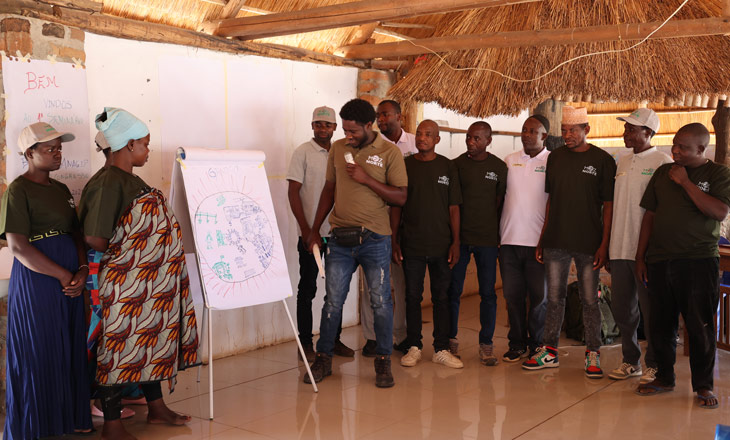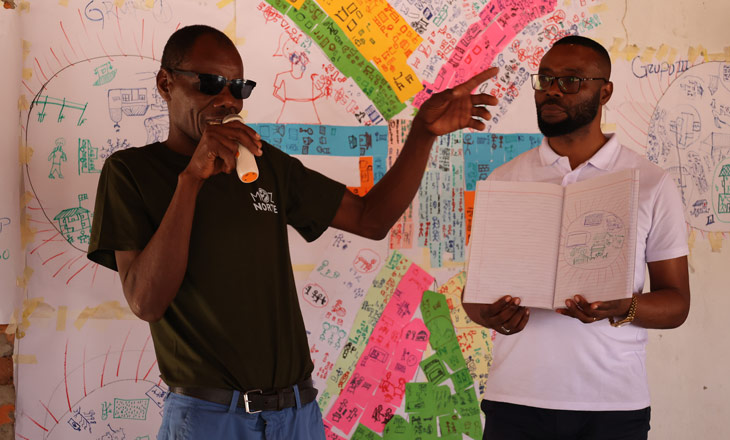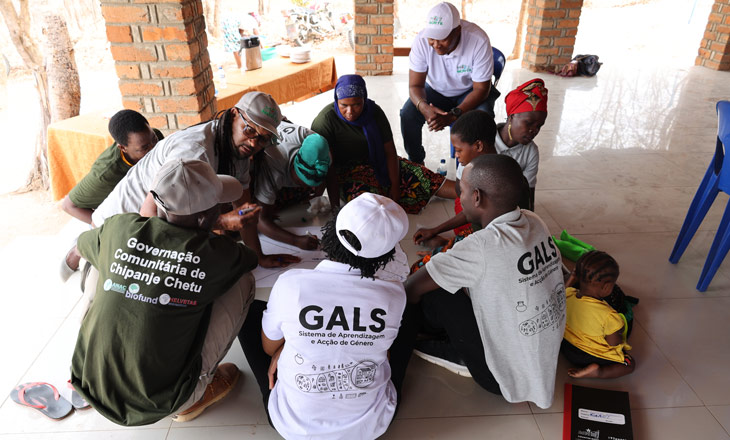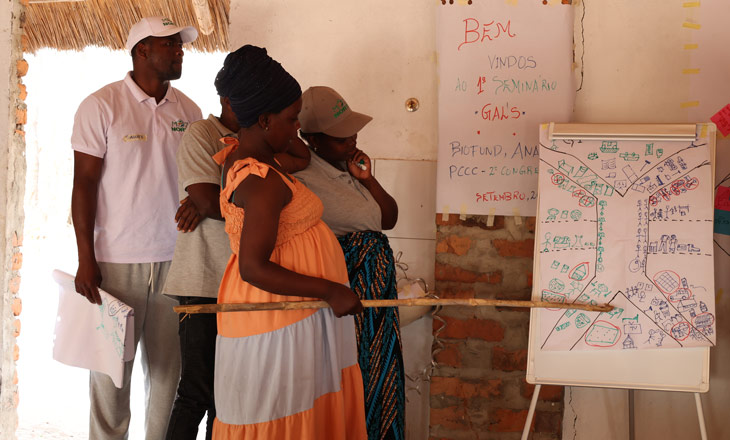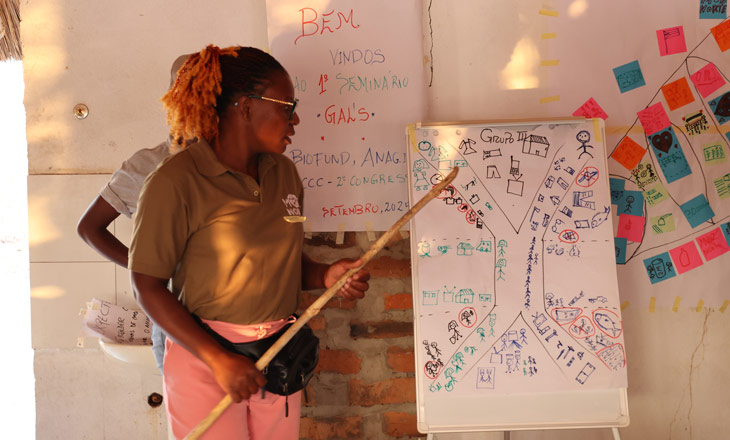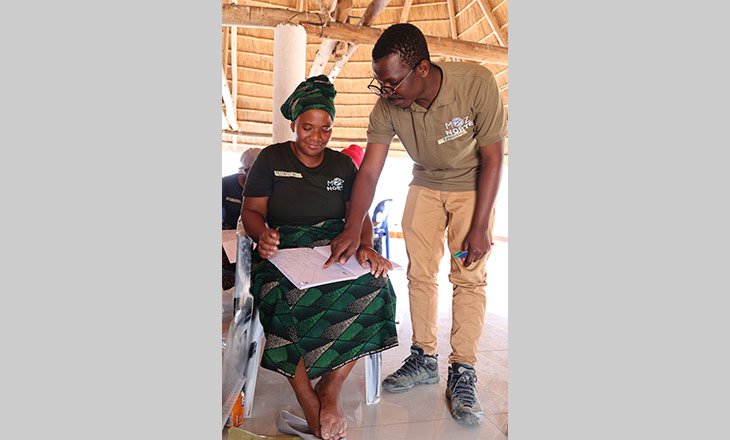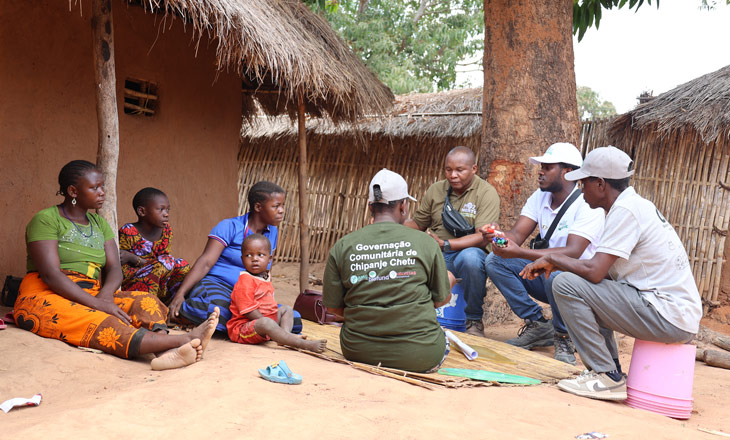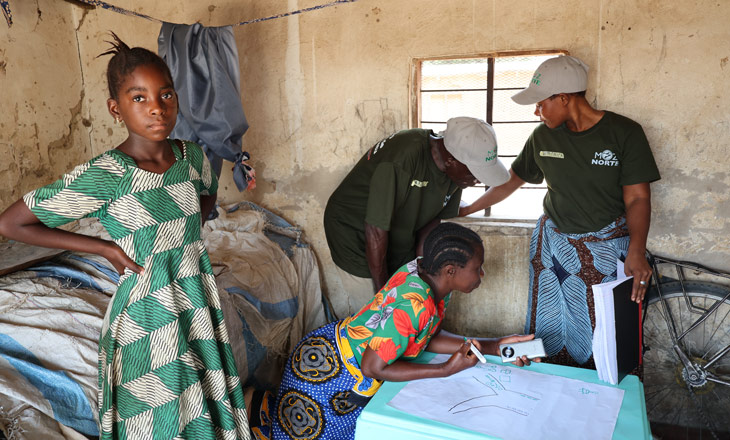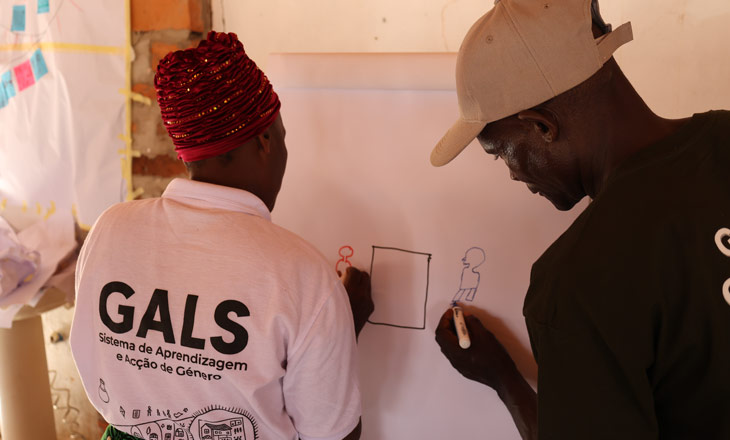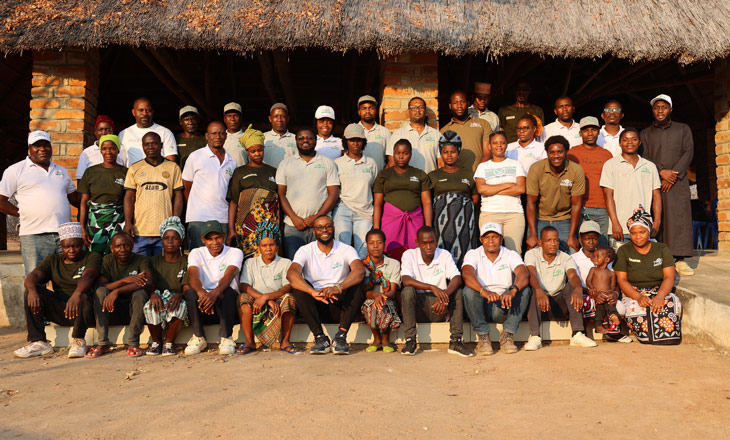Between 22 and 26 September, the community of 2º Congresso in the Sanga district, Niassa province, hosted the 1st GALS (Gender Action Learning System) Seminar, bringing together 40 participants (15 women → 37.5%) in a practical training focused on behavioral change and shared decision-making at home and in the community. The initiative was promoted by the Foundation for the Conservation of Biodiversity (BIOFUND), in partnership with the National Administration of Conservation Areas (ANAC) and Helvetas Mozambique, with funding from the World Bank, under the MozNorte Project.
Published at 01/10/2025
Niassa advances with GALS: 40 participants initiate change for gender equity in Sanga
- 40 participants (15 women; 25 men)
- 5 GALS tools applied
- 8 households visited in the field
- 1 follow-up plan agreed with the community
GALS is a participatory methodology that encourages men and women to dream together, plan collectively, and take shared responsibility in family and community decisions, ensuring that development benefits everyone.
During the seminar, teams worked with tools such as the Identity Diamond (deconstructing stereotypes), the Gender Justice Diamond (equity and shared responsibility), the Poverty and Wealth Diamond (levels of vulnerability and improvement goals), the Vision Journey (step-by-step planning), and the Gender Balance Tree at Home (fair distribution of roles and tasks).
The training also included fieldwork in eight households, where participants applied the tools, facilitated dialogues, and encouraged immediate changes (such as reorganising household chores and committing to short-term family plans for income, food, and children’s education).
The participants’ testimonies revealed significant shifts in perception. One participant stated: “I realized that my wife does almost all the household chores on her own. From now on, we will share the tasks, and this will bring more harmony to our family.”
Another participant highlighted: “I learned that I also have a voice in decisions about income and our children’s education. I feel more confident in sharing my ideas.”
Other testimonies reinforced the notion that, beyond biological differences, men and women have equal abilities to make decisions and manage resources.
The project’s Dialogue and Complaints Mechanisms (DCM) were also presented, reinforcing the prevention of gender-based violence, safe reporting, and conflict resolution as part of a coexistence grounded in social justice.
As next steps, community teams will conduct follow-up sessions to monitor the implementation of the action plans defined with families and replicate the methodology in other Sanga communities. The experience will also be extended to the MozRural programme, maintaining the same participatory approaches.
The Northern Mozambique Rural Resilience Project supports access to livelihoods and sustainable natural resource management in vulnerable communities in the northern part of the country, strengthening local capacities and social cohesion.

